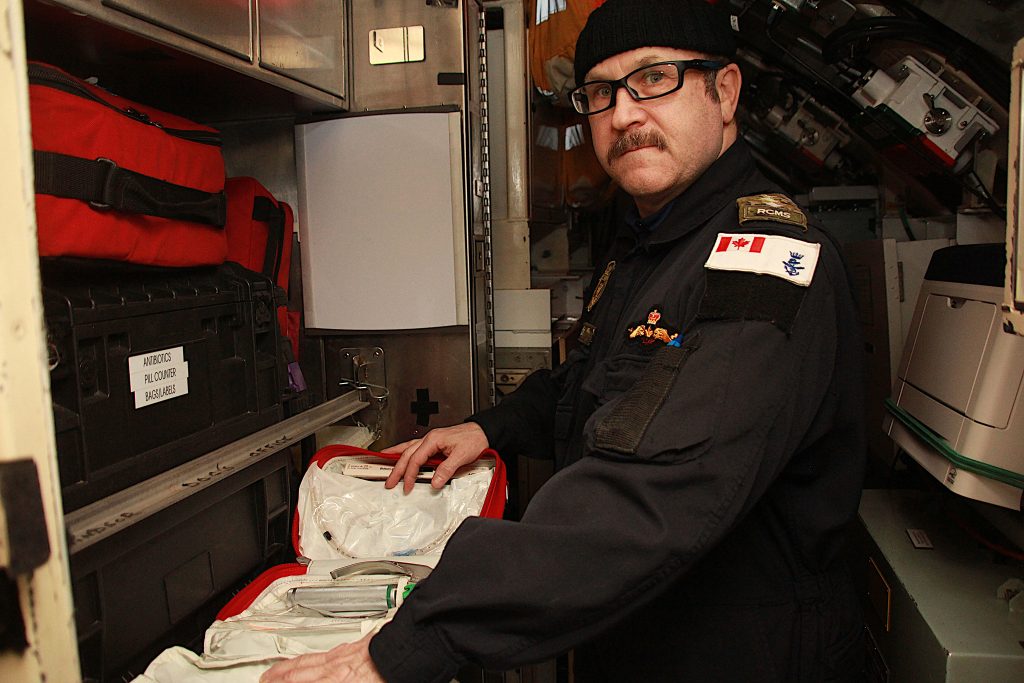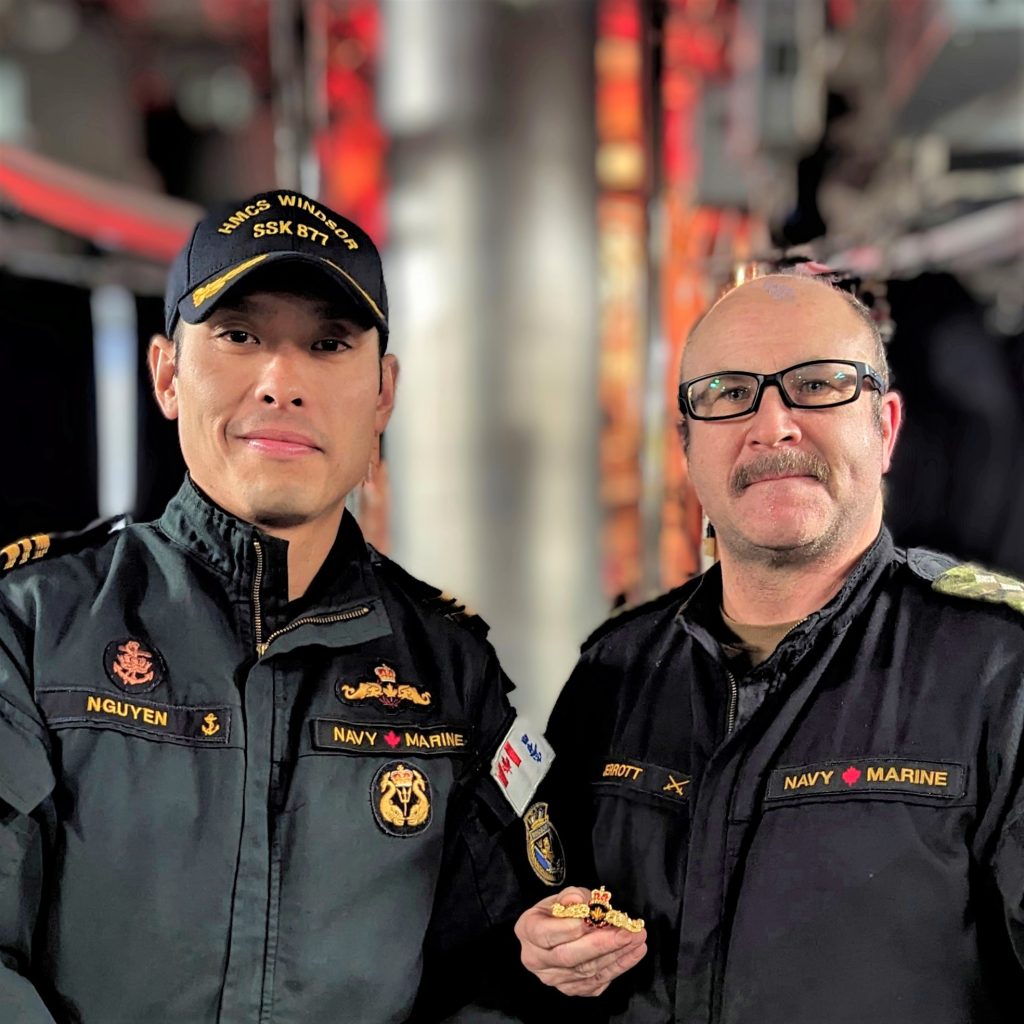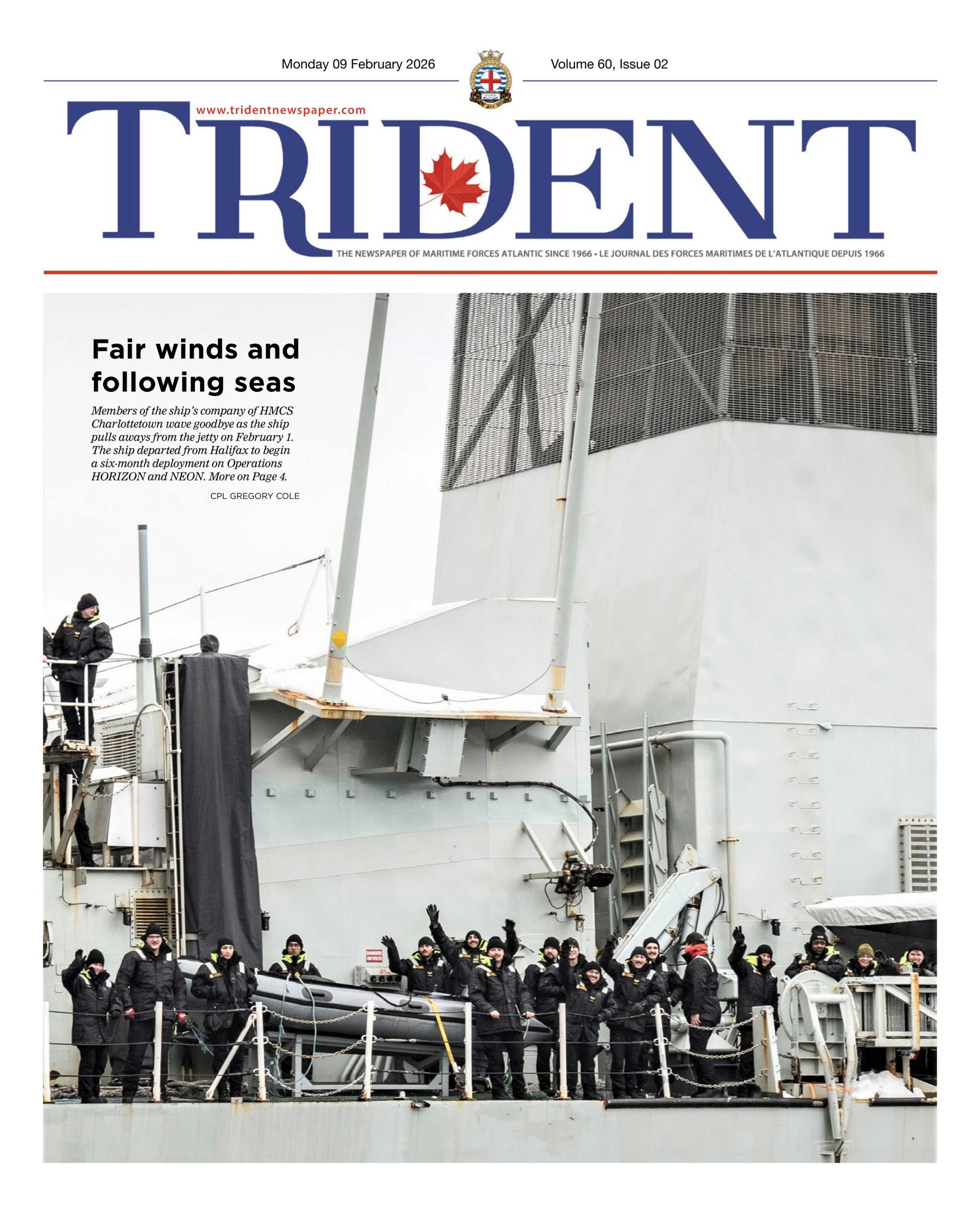
HMCS Windsor “doc” embraces challenge of undersea medicine
By Ryan Melanson,
Trident Staff
More than three decades into his military career, one Canadian Armed Forces (CAF) health-care provider has literally taken his job to challenging new depths.
And while it may initially seem odd to have an Army Captain filling out the crew of a Royal Canadian Navy submarine, Captain (Capt) Michael Jerrott explains that it’s actually nothing out of the ordinary.
“We’re a ‘purple’ trade – we can go anywhere,” Capt Jerrott said, noting that he’s not the first non-Navy member to serve in his current role, as Physician Assistant (PA) for His Majesty’s Canadian Ship (HMCS) Windsor, in recent years.
That being said, he does find himself fielding occasional questions.
“I had an NWO (Naval Warfare Officer) and a Log Officer come up to me in Borden and say ‘We’re confused; you’re wearing Army ranks and Navy Diver’s overalls’, so sometimes I do have to explain,’” he said with a laugh.
Originally from Nova Scotia’s Annapolis Valley, Capt Jerrott’s CAF career began in the early 1990s in the Army. He joined the medical branch in 2000 as a Medical Technician, before becoming a qualified PA in 2011. He’s provided care in a number of different challenging and unorthodox environments, from combat tours in Afghanistan to the High Arctic, or jungles and deep wilderness across Africa, Central America, and Eastern Europe. He’s served with Canadian Army, Royal Canadian Air Force, and Canadian Forces Special Operations Command units.
“I felt this was an opportunity to bring all that experience to one of the most remote and austere environments, where help could be days or weeks away,” he said of his decision to pursue the submarine PA role.
“I also appreciate the small-team dynamic and the opportunity to continue challenging myself and learning new things.”
Those opportunities have been abundant over the last year or so, as Capt Jerrott began working through the training required to safely integrate into the crew of Windsor, beginning with the three-month basic submarine course before joining the sub in Halifax to start applying that new knowledge. In November 2023, he became a qualified submariner after being presented his “dolphins” badge from Windsor Commanding Officer Lieutenant Commander Harrison Nguyen-Huynh.

This doesn’t mean the learning is over, however, and Capt Jerrott said he works each day to get more comfortable on the platform. The PA position’s responsibilities go beyond health care – he needs to be ready to stand watch and drive the boat, and to have extensive knowledge of the sub’s weaponry/Command and Control and other key systems. At the same time, keeping up with advances in medical care and keeping his clinical skills sharp is also crucial.
“There’s 47 other submariners to help support the boat, but I’m the only medical provider. Whether it’s mental-health care, trauma care, advanced cardiac life support, or any major illness, I’m the only person here with the professional knowledge to deal with that, so it’s very important,” he said.
The lack of space is the biggest change from previous jobs. Capt Jerrott has no dedicated office, and discussions with a member dealing with an injury or ailment take place in any free space he can find.
“We have options; we can use the Junior Rank’s Mess for a casualty, but for everyday things, we improvise.”
This also means the care that can be provided aboard the boat is very limited. Having the expertise and experience of a PA lends weight and credibility to his advice in the event Capt Jerrott suggests to the command team that Windsor head to shore to seek help for a crewmember, he added.
Assimilating with the team and earning the trust of his fellow submariners has been a process, but Capt Jerrott described the hard work as rewarding.
“I’ve shown the crew that I care and that I’m here to support them, and they in turn have supported me in my submarine learning,” he said, noting his rapport with the team is also important when it comes to monitoring mental health on board.
“I’ll walk the boat. I’ll go to each space and hang around, have a chat with folks and try to get the pulse of what’s going on during my off-watch time. I try to be as available as possible.”
As a message to others considering the silent service as a career option, Capt Jerrott said he has no regrets and has enjoyed the challenge so far – but it’s not for everyone.
“You need to have personal perseverance; the learning is not going to be easy or fast. It’s a different lifestyle, but it’s a great thing to be a part of – this is an amazing small team with great people.”






